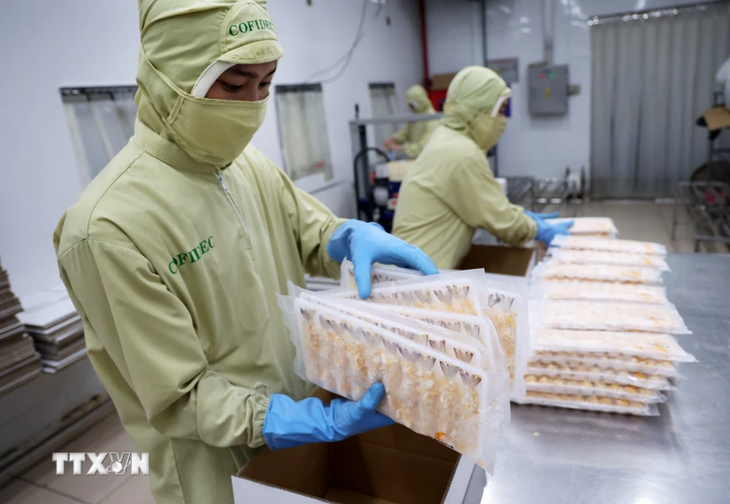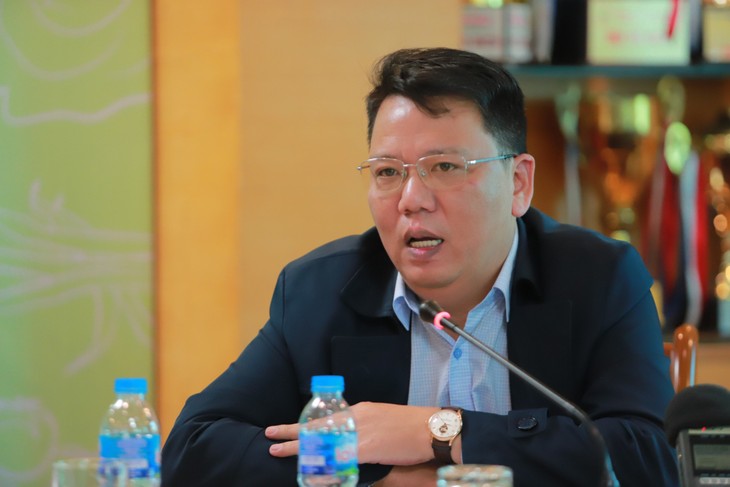(VOVWORLD) - Vietnam's agro-forestry and fishery exports to the EU have seen steady growth in recent years. The EU, a major market with over 450 million consumers, imposes strict and constantly changing food quality and safety standards. In response, Vietnamese exporters are working hard to stay in compliance with regulations.
 Packaging shrimp for export (Photo: Hong Dat/ VNA) Packaging shrimp for export (Photo: Hong Dat/ VNA) |
The rising demand for eco-friendly products, organic foods, and certified goods presents a significant opportunity for Vietnamese agricultural exports, according to the Vietnam Sanitary and Phyto-sanitary Notification Authority and Enquiry Point (SPS Vietnam).
Vietnam benefits from favorable natural conditions that allow it to produce agricultural products unavailable in the EU, such as dragon fruit, mango, passion fruit, lychee, and longan.
The EU’s food standards include SPS regulations covering food safety inspections, quarantine procedures, food additives, and technical barriers, plus pesticide residue limits.
 Ngo Xuan Nam, Deputy Director of SPS Vietnam (Photo: dantri.vn) Ngo Xuan Nam, Deputy Director of SPS Vietnam (Photo: dantri.vn) |
Ngo Xuan Nam, Deputy Director of SPS Vietnam, said, “Most Vietnamese agricultural products meet food safety and phytosanitary standards. But challenges remain in certain sectors experiencing rapid expansion. Some businesses and farming regions have yet to fully standardize production processes and strictly adhere to market regulations, which make them more vulnerable to violations.”
What does Vietnam need to do more to meet the stringent standards set by the EU and other international markets? Director of SPS Vietnam Le Thanh Hoa elaborated, "We must continue to closely monitor the quality of agricultural exports. Mostly we oversee the final stage, but we must manage risks throughout the production process, from fertilizers and pesticides to farming techniques. Only by overseeing the whole procedures can we ensure product safety."
Businesses are urged to stay informed of changes in EU regulations in order to improve product quality, meet food safety requirements, and maintain Vietnam’s competitive edge in the global agricultural market.